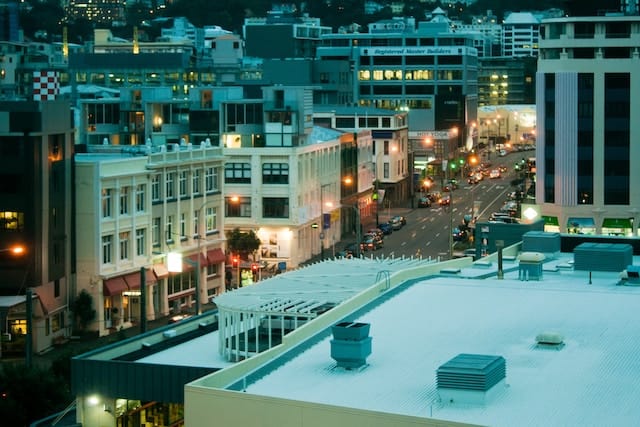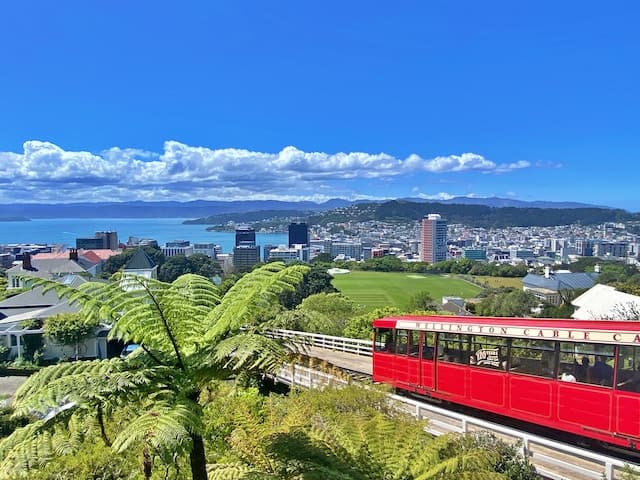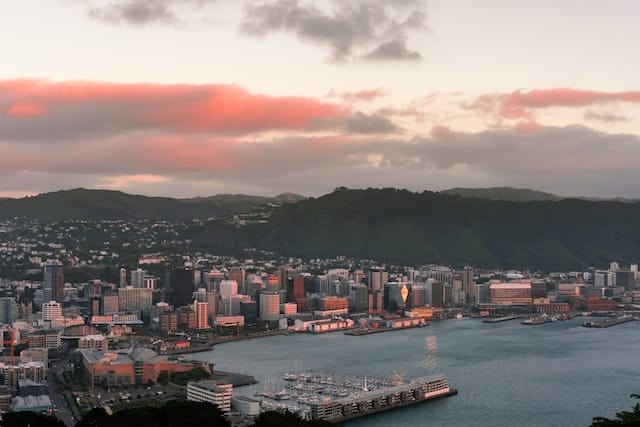Wellington, the vibrant capital of New Zealand, is a beautiful city that boasts stunning views, a rich cultural scene, and a welcoming atmosphere. As the southernmost capital city in the world, Wellington offers a unique living experience for those considering a move to the land of the Kiwis. This comprehensive guide aims to provide you with all the essential information you need to make your move to Wellington as smooth as possible.
Visa and Immigration
New Zealand offers various visa options for those looking to relocate to Wellington. Some of the most common visa types include:
- Skilled Migrant Category Resident Visa: If you have skills, qualifications, or experience that New Zealand needs, this points-based visa may be suitable for you. The Expression of Interest (EOI) pool draw takes place every two weeks, and candidates with higher points are more likely to receive an Invitation to Apply (ITA).
- Work Visa: This visa category allows you to work in New Zealand temporarily, with various subcategories based on specific skills, occupations, or employer requirements. Some popular subcategories include Essential Skills Work Visa, Work to Residence Visa, and Working Holiday Visa.
- Student Visa: If you plan to study in Wellington, you may need a student visa. To be eligible, you must have an offer of a place from a New Zealand educational institution.
- Family visas: New Zealand offers visa options for partners, children, and parents of New Zealand citizens or residents.
The visa application process generally involves completing an online application, providing supporting documents, and paying the relevant fees. It’s crucial to check specific visa requirements and processing times on the Immigration New Zealand website before applying. Keep in mind that immigration laws and regulations are subject to change, so staying up-to-date on the latest information is essential.
Cost of Living
Moving to Wellington requires a clear understanding of the cost of living in the city. From housing and utility costs to transportation and entertainment expenses, it’s crucial to know what to expect financially. The following section breaks down key cost of living factors to help you prepare for your move.
- Currency and exchange rates: The official currency of New Zealand is the New Zealand Dollar (NZD). Before moving to Wellington, it’s important to be aware of the current exchange rates between your home currency and the NZD. We highly recommend using an international remittance specialist when transferring money.
- Housing costs (renting vs. buying): Renting is a popular option for newcomers in Wellington, especially when first settling in. The rental market in the city can be competitive, with average rent for a one-bedroom apartment in the city center being around NZD 1,800 per month. Outside the city center, a one-bedroom apartment may cost around NZD 1,400 per month. If you’re considering purchasing a property, the median house price in Wellington is approximately NZD 800,000. Keep in mind that housing prices may vary depending on the location and property type.
- Utilities and other household expenses: On average, utilities (including electricity, water, heating, and cooling) for a two-bedroom apartment in Wellington may cost around NZD 200 per month. Internet services are generally priced between NZD 70 and NZD 100 per month. It’s also essential to factor in other household expenses, such as insurance and maintenance costs.
- Food and dining expenses: Grocery prices in Wellington are generally higher than in other countries due to its remote location. However, local produce and seasonal items are often more affordable. Eating out in Wellington can be relatively pricey, with a meal at an inexpensive restaurant costing around NZD 20, while a three-course meal for two at a mid-range restaurant may cost approximately NZD 100.
- Transportation costs: Public transportation in Wellington includes buses, trains, and ferries. A monthly public transportation pass typically costs around NZD 150. If you plan to drive, petrol prices are relatively high compared to other countries, averaging about NZD 2.20 per liter. Car insurance, maintenance, and parking fees should also be considered in your transportation budget.
- Entertainment and leisure expenses: Wellington offers various entertainment options, including cinemas, theaters, and live music venues. A movie ticket costs around NZD 18, while tickets for live performances can range from NZD 30 to NZD 100 or more, depending on the event. Wellington also has numerous outdoor recreational activities, such as hiking, mountain biking, and water sports, which can be enjoyed at little to no cost.
| Expense Category | Average Monthly Cost (NZD) |
|---|---|
| Rent (1-bedroom apartment in city centre) | 1,800 – 2,200 |
| Rent (1-bedroom apartment outside city centre) | 1,300 – 1,800 |
| Rent (3-bedroom apartment in city centre) | 3,000 – 4,000 |
| Rent (3-bedroom apartment outside city centre) | 2,200 – 3,200 |
| Utilities (electricity, heating, cooling, water, garbage) | 180 – 250 |
| Internet (60 Mbps or more, unlimited data, cable/ADSL) | 70 – 90 |
| Groceries | 400 – 600 |
| Transportation (monthly public transport pass) | 150 – 200 |
| Gasoline (1 litre) | 2.10 – 2.40 |
| Vehicle insurance (full coverage) | 100 – 150 |
| Meal (inexpensive restaurant) | 15 – 25 |
| Meal for two (mid-range restaurant, three-course) | 80 – 120 |
| Cappuccino (regular) | 4.00 – 5.00 |
| Beer (500ml, domestic) | 8 – 12 |
| Cinema (international release, one ticket) | 15 – 20 |
| Gym membership (monthly) | 60 – 100 |
| Preschool/Kindergarten (monthly, full-time) | 1,000 – 1,800 |
| International school (annual tuition fees) | 20,000 – 35,000 |
Housing and Suburbs
Popular Suburbs For Expats
Wellington offers diverse neighborhoods to suit different lifestyles and budgets. Some popular areas for expats include:
- Te Aro: A vibrant, central neighborhood with a mix of apartments, restaurants, and shops.
- Mount Victoria: A picturesque area with a mix of older homes and modern apartments, offering stunning views of the city and harbor.
- Thorndon: A historic neighborhood close to the central business district, with charming character homes and easy access to parks and recreational areas.
- Newtown: A multicultural suburb with a range of affordable housing options and a strong community feel.
Pros and Cons of Different Areas
Each neighborhood in Wellington offers its unique set of advantages and disadvantages. Some areas may provide better access to public transportation or job opportunities, while others may be more family-friendly or boast a more vibrant nightlife. It’s crucial to consider your priorities and preferences when choosing a neighborhood to call home.
How To Find a Place To Live
There are several ways to find accommodation in Wellington, including online property portals (such as TradeMe Property or realestate.co.nz) local real estate agents, and newspaper listings. Networking with local expat communities or joining social media groups dedicated to housing in Wellington can also be helpful in finding suitable accommodation.
Lease Agreements and Tenant Rights
Lease agreements in New Zealand typically last for a fixed term (usually 12 months) or can be periodic (with no fixed end date). Before signing a lease, it’s essential to understand your rights and responsibilities as a tenant. New Zealand’s Residential Tenancies Act outlines the legal framework for renting, including bond requirements, rent increases, and notice periods.

Employment and Business
- Job market overview: Wellington is home to a diverse job market, with opportunities in various sectors, including government, information technology, finance, and creative industries. The city has a relatively low unemployment rate, with many organizations offering competitive salaries and benefits.
- Popular industries and job opportunities: As New Zealand’s capital city, Wellington has a strong public sector presence, with many government agencies and organizations headquartered in the city. In addition, Wellington’s thriving tech scene offers numerous opportunities in software development, data analysis, and IT consulting. The city is also known for its creative industries, including film, television, and digital media production.
- Setting up a business in Wellington: If you’re considering starting a business in Wellington, there are several resources available to guide you through the process. Business.govt.nz provides a wealth of information on registering a company, understanding tax requirements, and accessing funding or support. In addition, the Wellington Chamber of Commerce offers networking opportunities and support for local businesses.
- Networking and local organizations for expats: Connecting with other expats and professionals in Wellington can be invaluable in navigating the job market and settling into the city. Groups like InterNations and Meetup offer opportunities to network with fellow expats, while professional organizations specific to your industry can provide further networking and development opportunities.
Education and Schools
- Public vs. private schools: New Zealand’s public education system is known for its high quality and is available to residents free of charge. However, private schools are also available, offering smaller class sizes and additional resources, but at a cost. Both options have their advantages and disadvantages, so it’s essential to consider your family’s needs and priorities when choosing a school.
- International schools: Wellington offers several international schools, including the International School of Wellington and the French School of Wellington. These schools typically follow an international curriculum and cater to the needs of expat families.
- Language courses: If you’re looking to improve your English language skills or learn te reo Māori, there are various language courses available in Wellington. Institutions such as Victoria University of Wellington and WelTec offer a range of language programs to suit different proficiency levels and learning goals.
- Higher education options: Wellington is home to several reputable higher education institutions, including Victoria University of Wellington and Massey University. These universities offer a diverse range of undergraduate and postgraduate programs in various fields, attracting both local and international students.
Healthcare
- Public vs. private healthcare: New Zealand’s public healthcare system provides free or heavily subsidized medical services to residents, including hospital care, emergency services, and some specialist treatments. However, the public system may have longer waiting times for non-urgent treatments. Private healthcare is also available in Wellington, offering shorter wait times and additional services at a cost. Many residents opt for a mix of public and private healthcare, depending on their needs and preferences.
- Health insurance options: While New Zealand’s public healthcare system provides a high level of care, some residents choose to purchase private health insurance for additional coverage or faster access to certain services. Several insurance providers in New Zealand offer a range of plans to suit different budgets and requirements.
- Finding a doctor or specialist: To find a general practitioner (GP) in Wellington, you can use websites like Healthpoint or the New Zealand College of General Practitioners’ directory. It’s essential to register with a local GP, as they will be your primary point of contact for healthcare services and referrals to specialists.
- Pharmacies and medications: Pharmacies in Wellington stock a range of over-the-counter and prescription medications. Some medications may require a prescription from a registered doctor. The cost of prescription medications is usually subsidized through New Zealand’s public healthcare system, but a small fee may apply.
Transportation
- Public transportation options: Wellington’s public transportation network includes buses, trains, and ferries, making it easy to navigate the city without a car. The Metlink website provides comprehensive information on routes, schedules, and fares. You can also use a pre-paid electronic card called a Snapper card for more convenient travel on buses and trains.
- Driving in Wellington: If you plan to drive in Wellington, you’ll need a valid driver’s license from your home country or an International Driving Permit. New Zealand drives on the left-hand side of the road, and it’s essential to familiarize yourself with local road rules and regulations. NZ Transport Agency provides useful resources for new drivers in the country.
- Biking and walking paths: Wellington is a bike-friendly city, with numerous dedicated cycling lanes and shared pathways. The city’s hilly terrain can be challenging, but the picturesque views make it worthwhile. Wellington is also known for its walkability, with many attractions and amenities within walking distance in the city center.
- Taxis and ride-sharing services: Taxis and ride-sharing services like Uber are readily available in Wellington, offering a convenient option for getting around the city. Fares may vary depending on the distance and time of day.

Culture and Lifestyle
- Language and communication: English is the primary language spoken in Wellington, but te reo Māori and New Zealand Sign Language are also official languages of the country. While you can get by with English, learning some basic Māori phrases and understanding local slang can enrich your experience in Wellington.
- Local customs and etiquette: New Zealanders, or “Kiwis,” are known for their friendly and informal demeanor. Common customs include greeting others with a handshake and using first names, even in professional settings. It’s also essential to respect Māori culture and traditions, as they play a significant role in New Zealand’s national identity.
- Sports, hobbies, and leisure activities: Wellington offers a wide range of recreational activities for residents to enjoy, including rugby, cricket, and netball. The city’s stunning natural landscape also provides ample opportunities for outdoor pursuits, such as hiking, mountain biking, and water sports.
- Dining and nightlife options: Wellington boasts a diverse dining scene, with numerous restaurants offering a variety of cuisines, from traditional New Zealand fare to international dishes. The city is also known for its vibrant café culture and excellent coffee. Wellington’s nightlife offers something for everyone, with bars, pubs, and clubs catering to different tastes and budgets. Popular nightlife spots include Courtenay Place, Cuba Street, and the Waterfront area.
- Festivals and events: Throughout the year, Wellington hosts various festivals and events, celebrating the city’s rich culture and history. Some notable events include the New Zealand Festival of the Arts, Wellington On a Plate, and the World of WearableArt Awards Show. These events provide an excellent opportunity to engage with the local community and experience Wellington’s unique charm.
Safety and Security
- General safety tips: Wellington is considered a safe city, but it’s essential to take standard precautions to ensure your personal safety. Be aware of your surroundings, especially when walking alone at night, and keep your belongings secure. It’s also a good idea to familiarize yourself with local emergency numbers and the locations of nearby police stations and medical facilities.
- Common scams and precautions: While scams are not prevalent in Wellington, it’s essential to be cautious when dealing with unfamiliar individuals or businesses. Be wary of unsolicited offers of assistance or deals that seem too good to be true, and always verify the legitimacy of any rental or employment opportunities before providing personal information or payment.
- Emergency services and contact information: In case of an emergency, dial 111 to connect with police, fire, or ambulance services. For non-emergency situations, you can contact the Wellington Police on their non-emergency number at +64 4 381 2000. It’s also a good idea to have the contact information for your country’s embassy or consulate in Wellington, as they can provide assistance in various situations.
Moving and Shipping Your Household Goods to Wellington
When relocating to Wellington, one of the key tasks is to plan the shipping and transportation of your household goods. Proper organization and research can help to ensure a smooth and cost-effective process. Here are some essential steps to follow:
- Research international moving companies: Start by researching reputable international moving companies that specialize in relocating household goods to New Zealand. Look for companies with experience in the region and positive customer reviews. Obtain multiple quotes to compare pricing and services.
- Evaluate services and costs: Consider the services offered by each moving company, such as packing, storage, insurance, and customs clearance. Compare the costs associated with each service and factor in any additional expenses, such as taxes and import duties. Keep in mind that shipping costs are typically calculated based on the volume or weight of your belongings and the shipping method (air, sea, or land).
- Choose a shipping method: The most common shipping methods for household goods are air freight and sea freight. Air freight is faster but more expensive, while sea freight is more cost-effective but can take longer. Assess your priorities and budget to determine the best option for your needs.
- Prepare for customs clearance: Familiarize yourself with New Zealand’s customs regulations to ensure a smooth import process. Be prepared to provide documentation, such as a detailed inventory of your belongings and proof of residence in Wellington. Some items may be subject to import duties or restrictions, so consult with your moving company to avoid any unexpected complications.
- Plan for delivery and unpacking: Coordinate with your moving company to arrange the delivery and unpacking of your household goods in Wellington. If you require temporary storage, make sure to research local storage facilities and reserve a unit in advance.
Conclusion
Moving to Wellington, New Zealand, can be an exciting and rewarding experience, offering a high quality of life and numerous opportunities. To ensure a smooth transition, it’s essential to research and plan in advance, considering factors such as visa requirements, housing, employment, and education. Familiarize yourself with the local culture and customs, and connect with fellow expats and locals to make the most of your time in Wellington.
While moving to a new city can be challenging, Wellington’s welcoming atmosphere and vibrant community make it an ideal destination for expats. With careful planning and a positive attitude, you can build a fulfilling life in this beautiful city. Embrace the opportunity to explore Wellington’s stunning natural landscapes, rich cultural scene, and friendly, laid-back lifestyle. Good luck with your move, and enjoy all that Wellington has to offer!

